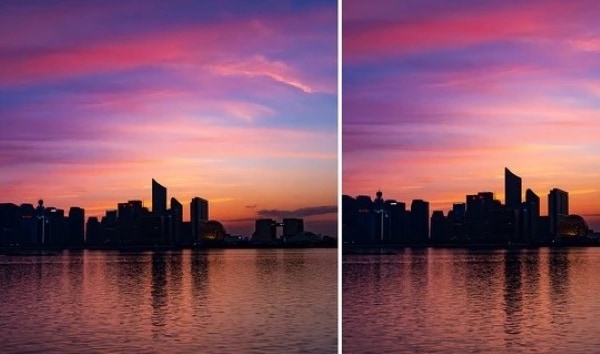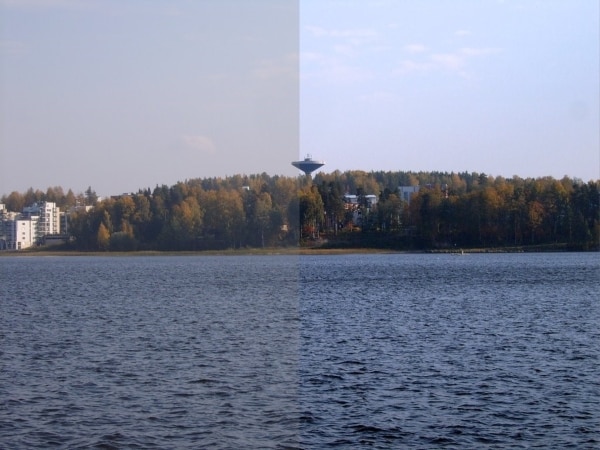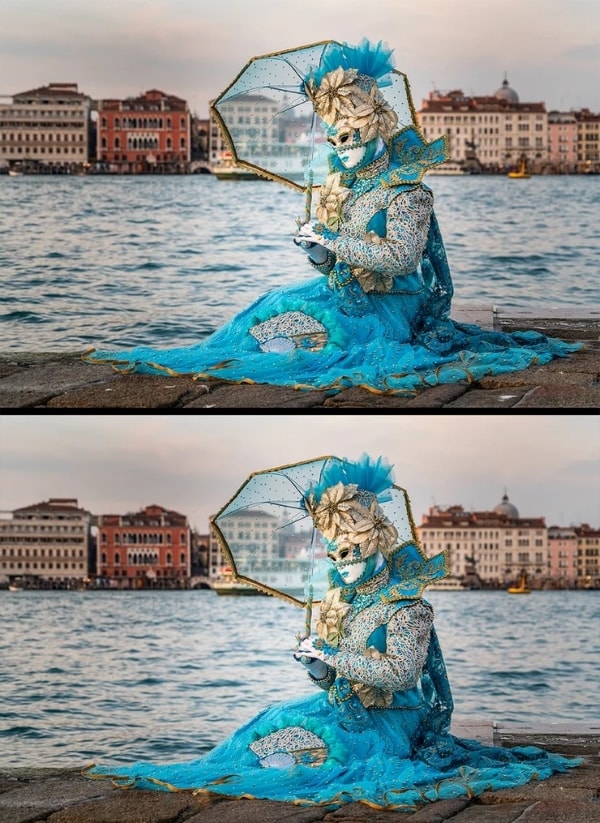
"In 2024, The Editing Odyssey Journey to Photo Mastery"

The Editing Odyssey: Journey to Photo Mastery
Post-processing is an essential tool in photography, using which you can create the look you want on your images. Regardless of your sharp photography skills or how perfect the shot is, images are almost always incomplete without editing. As an aspiring photographer, there are a few editing tips and hacks you should know to make the process easier and worthwhile.
To help you bring out the best in your photos, the following article contains some helpful photography editing tips. You can follow these techniques to create stunning images seamlessly.
Disclaimer: This post includes affiliate links
If you click on a link and make a purchase, I may receive a commission at no extra cost to you.
Part 1: 10 Photography Editing Tips for Creating Amazing Photos
Image editing is virtually an inevitable need these days. Numerous photography editing software are available to help enhance your images in multiple ways. These apps come laden with valuable features to help you create remarkable photos. But it is all in vain if you do not know how to utilize these tools properly.
To assist you in this regard, we have compiled a list of 10 effective photography editing tips and tricks. These are bound to prove fruitful in helping you bring your creative visions to life.
1. Cropping Can Help
One of the most important aspects of a photo is its framing and composition. While capturing an image, you might be paying close attention to every corner in the frame. Still, there might come times when things can get a little out of hand.
Luckily, every photography editing software offers the primary crop tool. You can easily omit unnecessary parts of your image with a few simple clicks. You can also seek help from a grid to ensure that your subject is in the center of the frame. Thus, you can add a symmetrical look to your images.

2. Presets are your Friends
When processing multiple images at once, the editing process can be tiring and bothersome. To help you out, most photography editing software comes with a range of presets and tools you can apply to your photos. If all your images need similar changes, these presets can come in handy. You can also create the perfect combination of settings yourself and apply them instantly.
Image name: photography-editing-tips-2.jpg” alt=”manga black white effect” class=”img-fluid” />
Image alt: use presets for image editing
3. Play With the Colors
If you look around closely, you can find that everything is associated with a specific color. From the lush green grass to the vibrant dreamy blue skies, everything has its shade. But upon closer inspection, you will find that it’s not just a single constituent color. The grass’s green contains shades of yellow, brown, and orange too.
If you train your eye to see these hidden colors, you can easily make your images pop. Under the right lighting, you can see the various shades underlying seemingly monochromatic things. You can play with these colors using simple color grading techniques to bring a more vibrant look to your image. Adjust the vibrancy, saturation, and tint until you get the look you want in your image.

4. Adjust the Contrast
One of the main reasons your images are looking flat is low contrast. Without a clear difference between foregrounds and backgrounds, the image can seemingly lack focus. You can play with the blacks and whites to adjust the contrast in your photo. Some of the best photography editing software offers a contrast slider that can help refine your image.

5. Try Overlays
Layering different textures and images to your photo is a great way to create visual interest in your image. Overlays are easy and helpful tools that are present in nearly all photography editing apps. You can use these to set the mood and create your desired atmosphere in the image.
Overlays are also useful for creating double exposure effects in your image. If you want to highlight some specific part of your photo, you can do it by adding a simple overlay. You can even adjust the transparency and intensity of the overlay to reach the desired effect.

6. Straighten the Horizon
Want to create a balanced and stable look for your image? You can easily achieve that by straightening the lines in your image. Although a simple trick, it is often overlooked and can impact the overall symmetry of your image.
You can choose a baseline in your image and then adjust it to straighten the image. Setting the skew during post-processing can help you create impactful images. Usually, the horizon is used as the baseline that needs straightening. You can also choose any other line in your photo and make use of the grid to rotate your image until it is in order.

7. Split the Tone
During the photography editing process, a little split-tone can go a long way. This means you can add specific colors to the shadows and highlights of your image. You can play with these colors to make your photos fall on the warm or cold end of the spectrum. Split tone can get out of hand pretty fast, so remember to keep it subtle.

8. Know your White Balance
Adjusting your image’s white balance is crucial for the photography editing process. All the light sources around you have their specific temperatures. They can thus bring a specific color temperature to the photo. Cameras are usually set at auto white balance, but you can alter that in the post-processing to satisfy your requirements.
While JPEG images can somewhat bend to a specific color temperature, RAW files offer a greater degree of flexibility. You can adjust your white balance to bring the photo towards a warmer or cooler tone. You can also create a warm/cold contrast to bring a dramatic effect to your image.

9. Pay Attention to Details
Being a photographer means having to keep a close eye on the details. No matter what type of photographs you are capturing, everything from nature to headshots requires keen attention to detail. One way of doing so is to remove spots or any background clutter from your picture.
Most of the prime photography editing apps offer spot removal tools. You will often encounter images where some careful adjustments are inherent. You can remove blemishes, stains, or any other distracting element from your image. This will help bring a clean and focused look to your picture.

10. Don’t Take It Too Far
It is quite easy to get carried away during photography editing. Remember not to take your editing a step too far. Try to keep the natural element of the image intact and avoid overdoing the contrast and color saturation. Heavy editing can often cause a perfectly good image to fall apart. Steer clear of unnatural editing and strong color grading.

Wrapping Up
The process of image editing is not always a piece of cake. It requires dedication, determination, and some sharp skills which are not easy to acquire. But with the right tips and techniques at hand, you can turn almost any picture into a cinematic masterpiece.
You can try the photography editing tips mentioned above to enhance your images effortlessly. Although seemingly ordinary, these editing tips can help make or break your photos.
Also read:
- [New] 2024 Approved Abridged Blueprint for Starting Virtual Conversations Zoom Edition
- [New] 2024 Approved Mobile's Best Explore 8 Leading Free MP3 Download Applications
- [New] 2024 Approved Professional Insight Into Accurate and Clear VR Recording
- [New] In 2024, Deep Windows 11 Secrets Effortless Media Upload Made Simple
- [New] Metaverse Enthusiasts' Secret to Simple Avatars
- [New] ZOOM-Skype Integration Secrets to Ultimate Video Conferencing
- [Updated] Creating Emotional Depth Scriptwriting Tips
- [Updated] Luminous Landscapes Designing Visuals that Dazzle Viewers for 2024
- 2024 Approved Laying The Groundwork For Successful Channels
- 2024 Approved Top Tools for Saving Insta Photos & Videos
- Fix Unfortunately Settings Has Stopped on Meizu 21 Pro Quickly | Dr.fone
- Propel Your Cinematic Vision with Advanced Windows 10 Video Tools
- Step-by-Step Guide: Fixing the 'Out Of Order' Mistake in Handbrake Transcoding
- Swift AV Handling: Upgrade Your VLC Experience
- Title: In 2024, The Editing Odyssey Journey to Photo Mastery
- Author: Ronald
- Created at : 2024-12-18 09:27:12
- Updated at : 2024-12-20 22:09:29
- Link: https://fox-cloud.techidaily.com/in-2024-the-editing-odyssey-journey-to-photo-mastery/
- License: This work is licensed under CC BY-NC-SA 4.0.